
Previous research demonstrated that plasma neuronal-enriched extracellular vesicles exhibited elevated levels of p-tau, amyloid-beta 42, and phosphorylated insulin receptor substrate.

Previous research demonstrated that plasma neuronal-enriched extracellular vesicles exhibited elevated levels of p-tau, amyloid-beta 42, and phosphorylated insulin receptor substrate.

The professor of emergency medicine at the University of Wisconsin-Madison School of Medicine and Public Health spoke about the challenges physicians face in the emergency department when dealing with patients that are cognitively impaired.

In addition to physical activity, lower vascular risk factors, assessed via the Framingham risk score, were independently associated with slower PACC decline and gray matter volume loss.
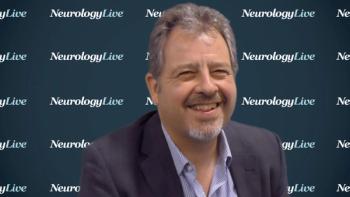
The professor of age-related diseases and Dean of the University of Exeter Medical School spoke about the need for proper training of nursing home staff in order to improve quality of life in patients with dementia.
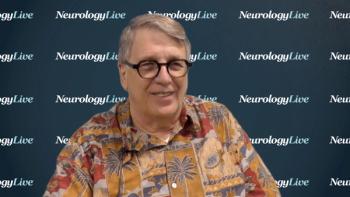
The professor of neurology and founding chair of the John T. Macdonald Foundation Department of Human Genetics at the University of Miami spoke about how the risk of Alzheimer disease differs between ethnic groups, despite being associated with the same genetic marker.

The DCTclock demonstrated a 37% increase in discrimination over the traditional cognitive assessments.

uMETHOD Health has implemented a precision-medicine platform to create personalized, multidomain care plans for the treatment of dementia and mild Alzheimer disease.
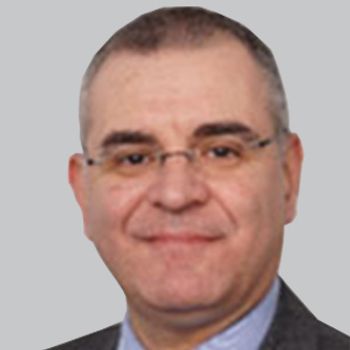
The AMBAR trial is based off of the hypothesis that amyloid-beta is bound to albumin and circulates in plasma; extracting this plasma may in turn flush amyloid from the brain.
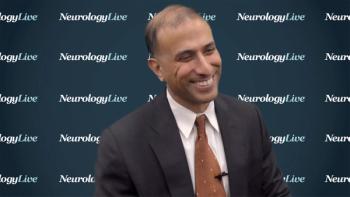
The professor of emergency medicine at the University of Wisconsin-Madison School of Medicine and Public Health spoke about how telemedicine in senior living communities can effectively decrease ED use by individuals with dementia.

The concept of cognitive reserve refers to one’s capacity to be resilient to age-related brain degeneration and disease-related pathology.

People who did not use trazodone had up to a 2-fold faster decline in MMSE score than those who used the drug.

Findings suggest that a subgroup of patients categorized as amyloid beta-negative may continue to accumulate the destructive protein and experience cognitive changes.
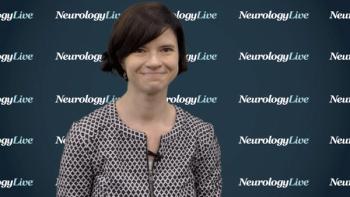
The research fellow at the University of Exeter spoke about the findings from her observational study which showed that living a favorable lifestyle could offset the risk for dementia, even if that risk is genetically linked. 



While single modality therapy is safe, feasible, and effective, researchers demonstrated that a combined modality shows greater domain-specific cognitive enhancements with higher transferability and sustainability.

Participants with high CSF Aβ1-42/tau and lower NPTX2 levels experienced greater decline throughout the 36 months than all other subgroups on memory acquisition, delayed recall, and CDR-sb.

After identifying and reviewing 76 randomized trials, combination therapy with memantine and AChEIs is confirmed to have no additional benefits over monotherapy.

Lutz Frölich, MD, PhD, spoke about the importance of continuing with research in light of negative trials in Alzheimer disease.

Hendrix spoke to the challenges he and colleagues come across, as well as his hope for the promising future.

Selkoe spoke to a number of topics in the Alzheimer space, including the challenges in the field and his excitement for the future.

Lutz Frölich, MD, PhD, discussed the imperativeness of collaboration between stakeholders—clinicians, pharmaceutical companies, researchers—in developing therapies for Alzheimer disease.
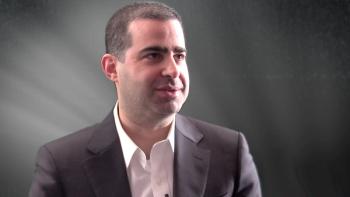
The neurosurgeon from Sunnybrook Health Sciences Centre spoke about his excitement about where the medical community is at, at this point, in the understanding of Alzheimer disease.

Livingston spoke to a number of topics in the dementia space, including the challenges clinicians face and her hope for the future.

The head of the Department for Geriatric Psychiatry, Central Institute of Mental Health talked about the biggest challenges facing medicine in treating and understanding Alzheimer disease.

DREAMS-START demonstrates that a manual-based psychological treatment for sleep disorders in dementia is feasible and acceptable.

Nabilone significantly improved agitation, neuropsychiatric symptoms, cognition and nutrition in patients with moderate-to-severe Alzheimer disease.

The founder and CEO of T3D Therapeutics, Inc., spoke about T3D’s desire to go against the grain and trend in the therapeutic development for mild to moderate Alzheimer disease.

The findings suggest that intensive lowering of blood pressure may reduce the risk of mild cognitive impairment and the combined risk of mild cognitive impairment and dementia, but not dementia alone.

The head of the Department for Geriatric Psychiatry, Central Institute of Mental Health discussed his thoughts about patients with mild dementia and prodromal Alzheimer disease.

Data back a 4-fold higher dose of crenezumab in the CREAD 1 and CREAD 2 trials than used in phase II.

Hampel looks to the future of the Alzheimer space and sees promise, especially since there’s transfertilization from other advanced science fields in medicine like oncology, diabetes research and rheumatology.